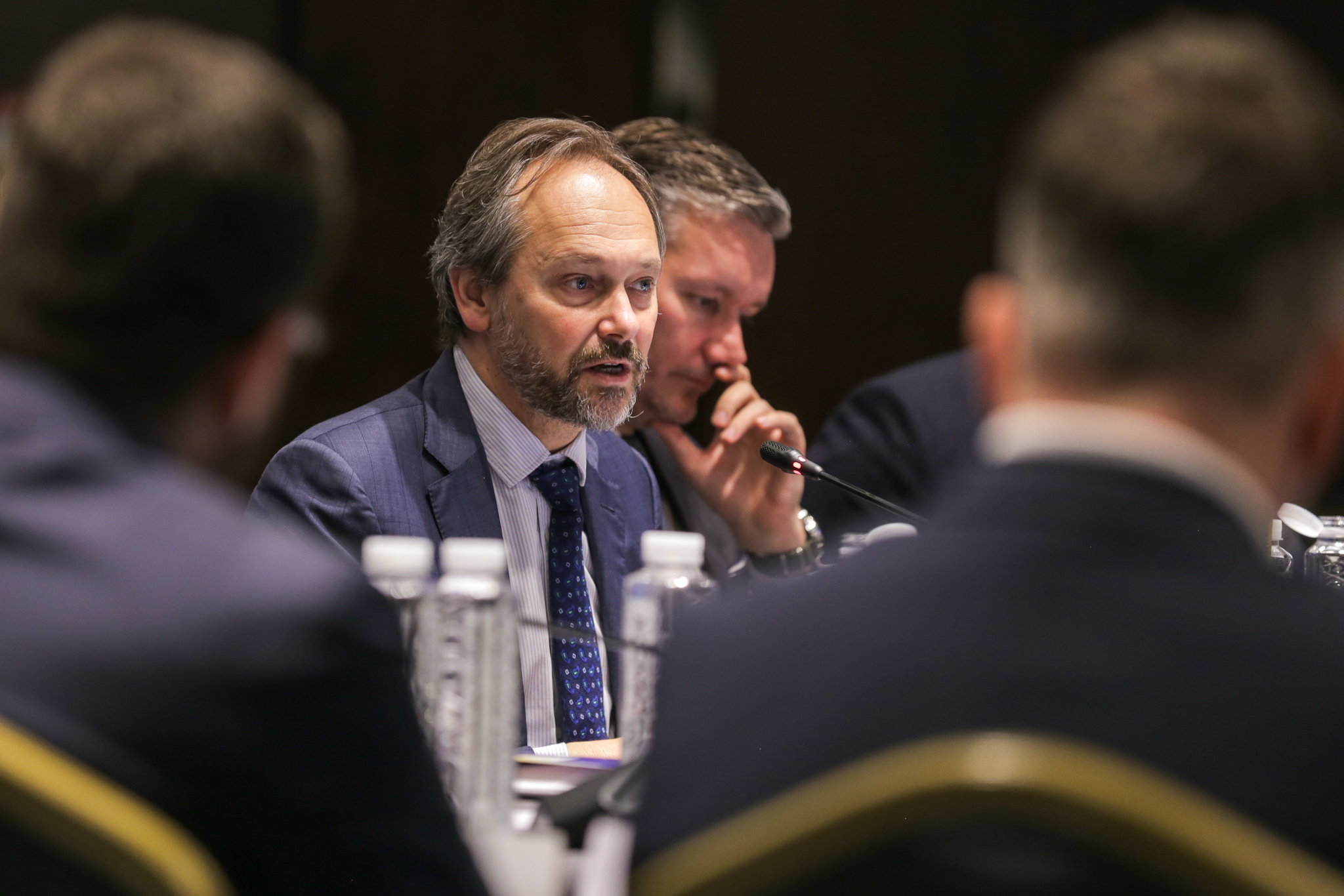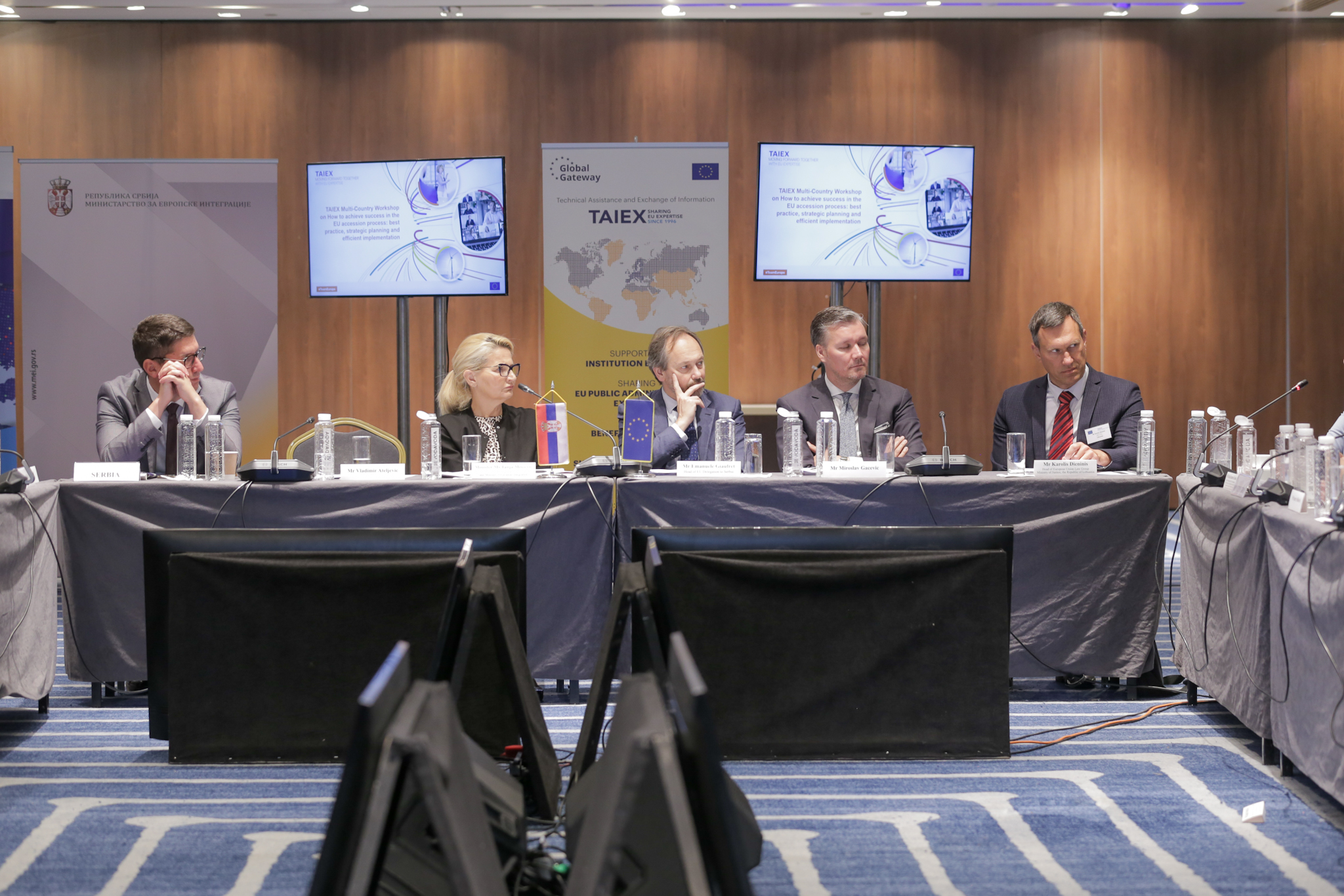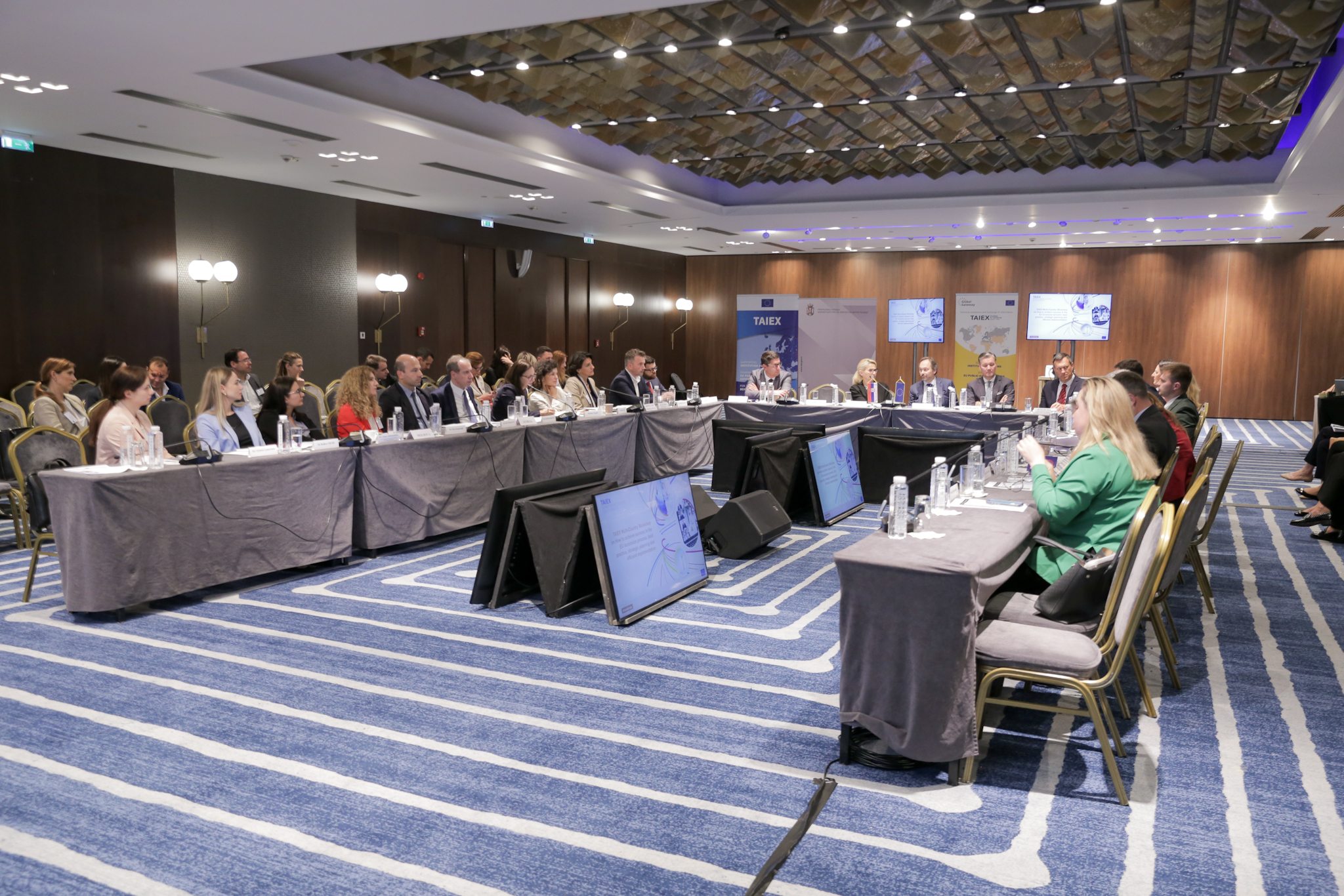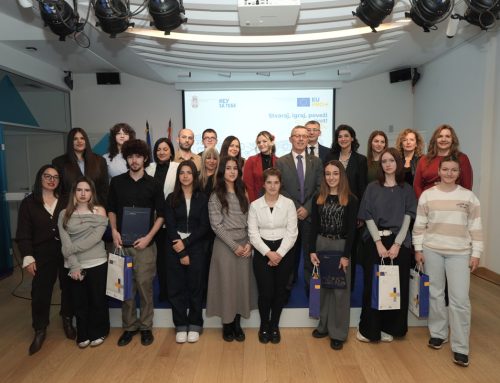“How to succeed in the EU accession process: best practices, strategic planning and effective implementation” was the topic of the two-day meeting in Belgrade. This is the first meeting of the main negotiators and negotiating structures of the Western Balkan countries, but also of Ukraine, Moldova and Georgia.
The EU Ambassador to Serbia Emanuele Giaufret thanked the Ministry of European Integration for initiating the idea of organizing such a meeting in Belgrade, with the help of the TAIEX mechanism of the European Commission.
“I am extremely pleased to see the motivation and optimism of the candidate countries to cooperate and exchange experiences. Only through joint work can we build a common European future. I believe that this seminar has produced new ideas and opportunities for future cooperation between countries on their path to the EU”, said Ambassador Giaufret.

At the event opening, Tanja Miščević, Minister for European Integration, emphasized that it was Serbia that initiated the expert dialogue between candidate countries for EU membership, representatives of the European Commission, and experts from member states. “Our goal”, as the Minister pointed out, “is to discuss what experiences of earlier enlargements we can use today, and what are the new lessons learned in the process of integration, which the countries of our region can pass on to new candidates.
“The key area that this workshop deals with is the experience of working on improving the rule of law and Cluster 1 – Fundamentals, as the most important element of the negotiation process. Certainly, the goal is to deepen professional contacts with colleagues from all candidate countries, not only us chief negotiators, but also colleagues from competent ministries in our countries”, Minister Miščević stressed.

Officials from eight candidate countries for EU membership – Albania, Bosnia and Herzegovina, Georgia, Moldova, Montenegro, the Republic of North Macedonia, Ukraine and Serbia, but also from EU member states – Croatia, the Czech Republic, Lithuania and Slovenia, as well as the European Commission talked about judicial reforms, migration management, fight against corruption, public administration reform and other topics.
Special topics included the establishment of an institutional system for European integration in countries that have yet to start negotiations, the methodology of harmonization with the EU legal acquis, as well as the involvement of the public in the negotiation process. The workshop participants included the representatives of ministries and bodies of the Government of Serbia involved in the negotiation process, as well as the Delegation of the European Union in Serbia.
View this post on Instagram




